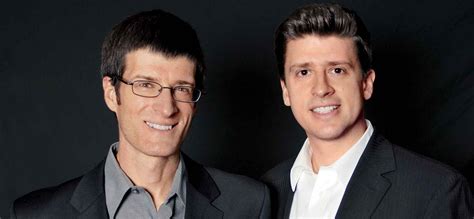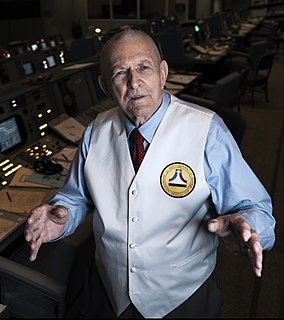A Quote by Chip Heath
Related Quotes
Spaceflight will never tolerate carelessness, incapacity, and neglect. Somewhere, somehow, we screwed up. It could have been in design, build, or test. Whatever it was, we should have caught it. We were too gung ho about the schedule and we locked out all of the problems we saw each day in our work. Every element of the program was in trouble and so were we. The simulators were not working, Mission Control was behind in virtually every area, and the flight and test procedures changed daily.
For many years in my laboratory and other laboratories around the world, we've been studying fly behaviors in little flight simulators. You can tether a fly to a little stick. You can measure the aerodynamic forces it's creating. You can let the fly play a little video game by letting it fly around in a visual display.
I'm interested in the parallel narrative of our fantasy lives. How the moment of 'now' that is palpably real, is surrounded by our memories, our dreams and hopes, the stories and connections that our brains make as we navigate a universe of fantasy, or unreality, or surreality. I'm keen to explore this very human experience, how our minds create our own realities, a blend of fact and interpretation of fact.
Many quantum physics are realizing or hypothesizing that consciousness is not a byproduct of evolution as has been suggested. Or for that matter, an expression of our brains, although it expresses itself through our brains. But consciousness is the common ground of existence that ultimately differentiates into space, time, energy, information and matter. And the same consciousness is responsible for our thoughts, for our emotions and feelings, for our behaviors, for our personal relationships, for our social interactions, for the environments that we find ourselves in, and for our biology.


































